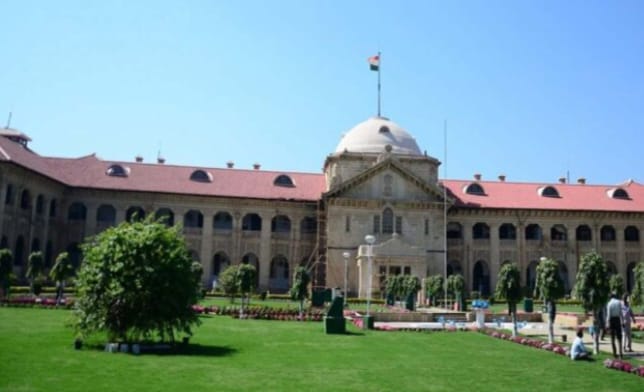– Akhilesh Tripathi
Lucknow: The Allahabad High Court has issued an order halting the ongoing hearing in the Sambhal district court concerning the Shahi Jama Masjid dispute. This decision was made while hearing a petition filed by the management committee of the Shahi Jama Masjid.
The controversy began on November 19, 2024, when a case was filed in the Sambhal Civil Judge court by Advocate Vishnu Shankar Jain, Advocate Hari Shankar Jain, Mahant Rishiraj Giri, and six other petitioners representing the Hindu side. They claimed that the land on which the mosque stands originally belonged to the Harihar Temple. According to the petition, the temple was partially demolished in 1526 by Mughal ruler Babur and converted into a mosque. The petitioners sought access to the mosque and requested a survey of the premises.
On the same day, Civil Judge Aditya Singh ordered a survey of the Shahi Jama Masjid and appointed Advocate Ramesh Raghav as the court commissioner. Raghav conducted the survey with the full cooperation of the mosque’s representatives.
On November 24, 2024, Raghav, accompanied by the District Magistrate, SP, SDM (Sadar), City Circle Officer, and a large police force, arrived to conduct a second survey of the mosque. Questions arose about the authority behind this second survey, as no formal order was presented. This led to clashes between the administration and local residents, resulting in tragic violence that claimed five lives. The origin of the order for the second survey remains unclear.
In response to these developments, the Supreme Court intervened in November 2024, imposing a stay on the proceedings in the Sambhal district court. The SC directed the district court to halt the case until the petition filed by the mosque committee challenging the survey order was addressed by the Allahabad High Court.
On January 8, Allahabad High Court bench led by Justice Rohit Ranjan Agarwal heard the mosque committee’s petition. The HC ordered a stay on the ongoing hearings in the district court and scheduled the next hearing for February 25. It directed the Union of India, the Archaeological Survey of India, the Uttar Pradesh government, and the district magistrate to submit their responses within four weeks. The mosque committee was instructed to file its rejoinder within two weeks of receiving these responses.
The High Court’s decision is seen as a major relief for the Shahi Jama Masjid management committee. The ruling comes amidst rising communal tensions in Sambhal, where allegations have been made against individuals and local authorities for promoting disputes by claiming temples exist within mosques and shrines. The High Court’s intervention serves as a strong rebuke to these activities and underscores the need for administrative impartiality.




